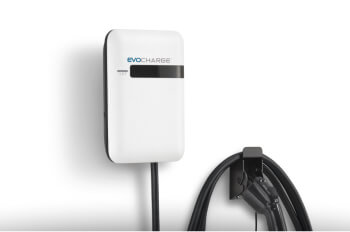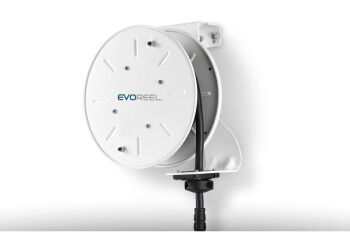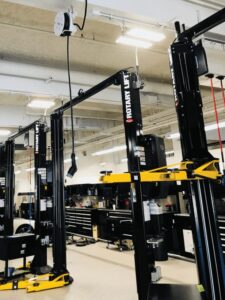
Now more than ever, consumers are looking at electric vehicles (EVs) as a viable option for their next vehicle purchase. According to research and analysis performed by Bloomberg New Energy Finance (BNEF), more than 20 million EVs, consisting of both all-electric vehicles as well as plug-in hybrid electric vehicles (PHEV), will be on the road in the United States by 2030. This is a technology trend that commercial real estate and property owners should prepare for.
To maximize this growth opportunity, pragmatic car dealerships, service centers and tire shops are expanding their future strategy to support EVs. And, these aren’t the only businesses planning ahead.
Commercial Real Estate Technology Trends on the Horizon
The global electric car rental market is poised to grow by $7.14 billion between 2020 to 2024, progressing to a compound annual growth rate (CAGR) of 11 percent. Additionally, companies, such as Amazon, are adding EVs to their fleets. And ride sharing companies, such as Lyft, are investing in EVs to rent to drivers. With the existing infrastructure centered around internal combustion engines (ICE), many are concerned they won’t be able to charge vehicles as easily as they can fill the tank.
As a result of significant economic changes in 2020 and 2021, most companies are reshaping their business to gain a competitive edge for the future, which commercial real estate and property owners can take advantage of by investing in technology trends. Automotive dealers, service centers, tire shops, parts stores, body shops, car rental companies and fleets are differentiating their business models by advancing their EV and PHEV investment. As such, Level 2 charging stations, like EvoCharge®’s EVSEs, are an important part of the plan.
Safety First

Safety is a critical concern when making an informed purchase decision about charging stations and other property technology trends. The Occupational Safety and Health Administration (OSHA) requires working spaces, walkways and similar locations be kept clear of cords to eliminate hazards for employees and customers. Additionally, to be compliant with the Americans with Disabilities Act (ADA) regulations, station and cable location and height are key.
EvoCharge’s EvoReel® Cable Management System
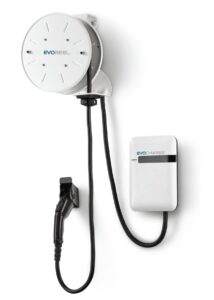
Cable management systems engineered for EV charging stations, including EvoCharge’s EvoReel®, provides convenience as well as safety compliance with OSHA and ADA regulations. When not in use, the charging cable rewinds, keeping the cable off the floor and reducing tangled cords that create dangerous tripping hazards. EvoReel also prolongs the life of the cable and connector by keeping it off the ground and not likely to be run over.
EvoCharge commercial charging stations provide:
- Uptime
- Safety
- Cleanliness
- Efficiency
- Durability
- Amenity and passive income
For those commercial real estate and property owners looking into technology trends, investing in EvoCharge charging station with EvoReel cable management improves EV station areas.
Incentives and Rebates
Finding and taking full advantage of state or government and utility company incentives and rebates may help reduce the cost of purchasing and installing EV charging infrastructure. Most utility incentive programs require networked charging stations to qualify for their funds. Networked charging stations provide control over the stations and the ability to manage the time and electricity use. EvoCharge offers a complete line of networked charging stations to meet all your needs. Check for incentive and rebate options in your area at the U.S. Department of Energy website, or learn more about how the electric car tax credits work.
Load Balancing or Local Load Management (LLM)
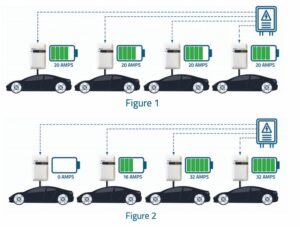
EvoCharge products offer additional value to commercial real estate and property owners with integrated local load management (LLM), which allows electrical load balancing between the charging stations. This permits the use of your facilities’ existing electrical panel, avoiding expensive installation costs and maximizing current infrastructure—helping property owners keep up with technology trends without overwhelming additional costs.
The graphics below show an 80-amp electrical panel with a dedicated circuit. The electricity to each vehicle can be managed based on two methods: distributed load or first in, first served.
Proprietary Versus Open Charge Point Protocols
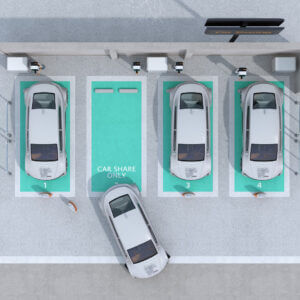
Many of the commercial EV charging stations today are managed by a network service (much like cellular phone networks). A central system allows communication between the EV charging infrastructure, the cloud and utility power grid—controlling charging status, processing payments and more. EvoCharge commercial charging stations have Open Charge Point Protocol (OCPP); that means you can connect to a variety of non-proprietary networks. If you choose a proprietary network you are locked into that charging station and network provider and unable to switch if you are unhappy with service or costs. As a property owners looking to invest in technology trends make sure you consider all the options and not get locked into a system that does not benefit you.
EvoCharge® Charging Systems
EvoCharge offers networked and non-networked charging station options as well as pedestal and cable management accessories.
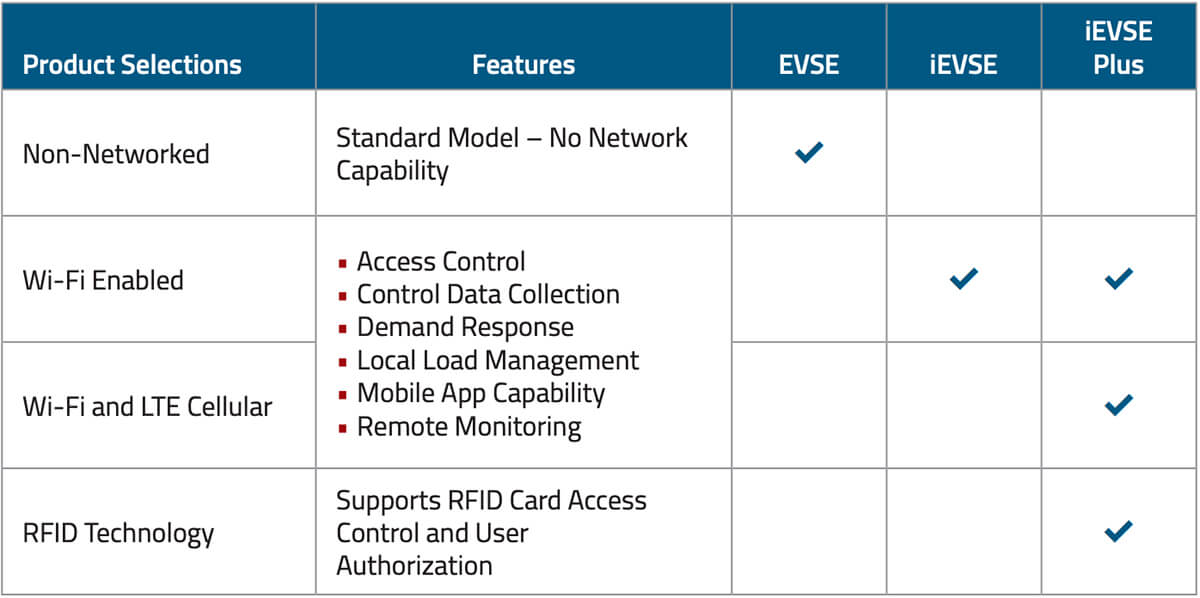
EvoCharge charging stations are compatible with all EV and plug-in hybrid electric vehicles (PHEV) sold throughout the United States and Canada (Tesla with adapter). The three base models offer the perfect solution for every type of connection and application. Let us help you customize the solution that fits your needs.
To learn more about EvoCharge and EvoReel and to discuss integrated solutions or reseller opportunities, contact our team and start your EV charging transformation today.

